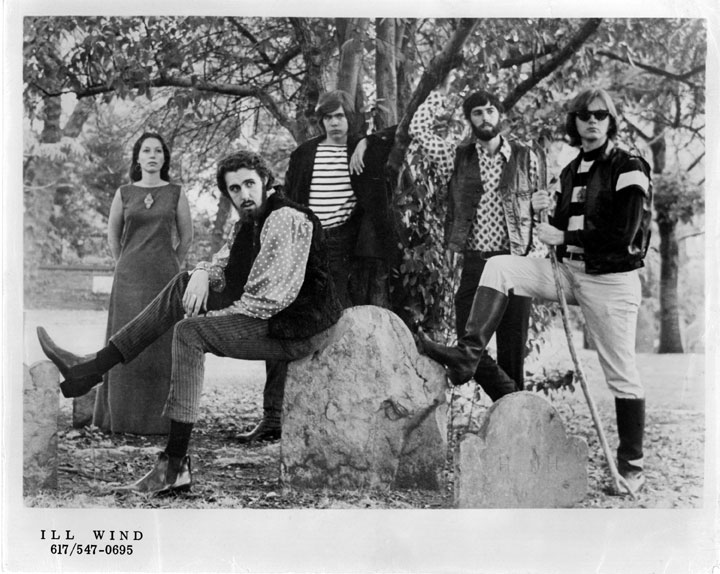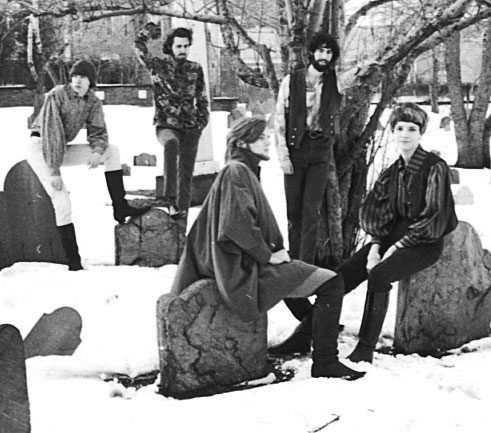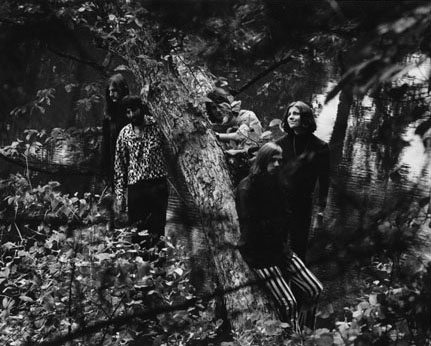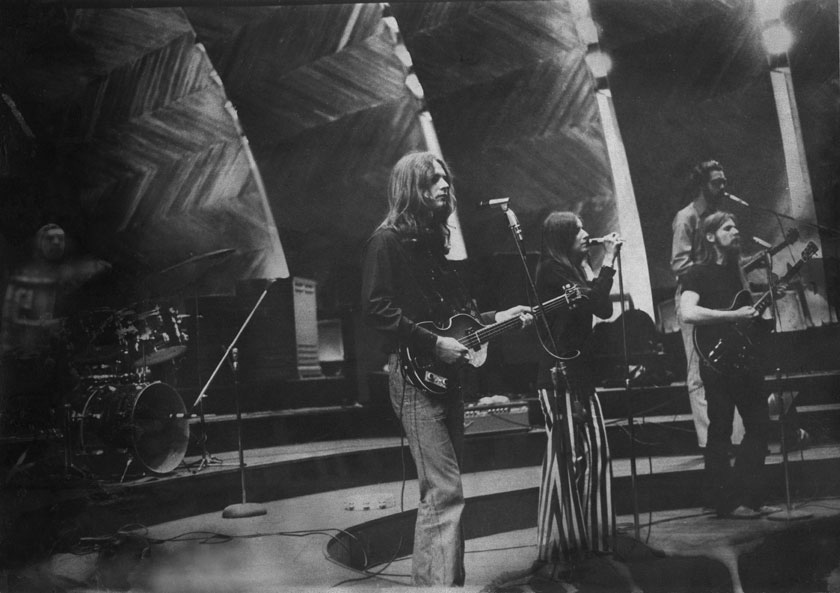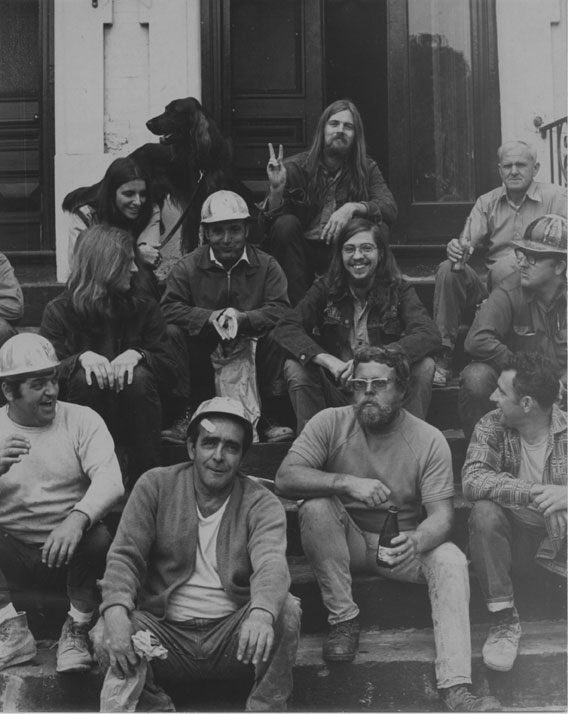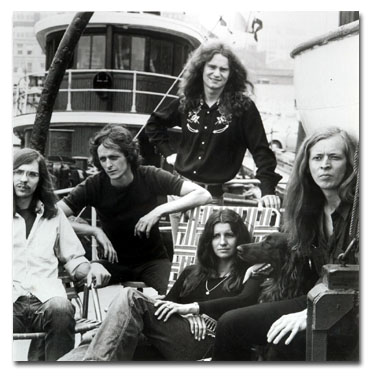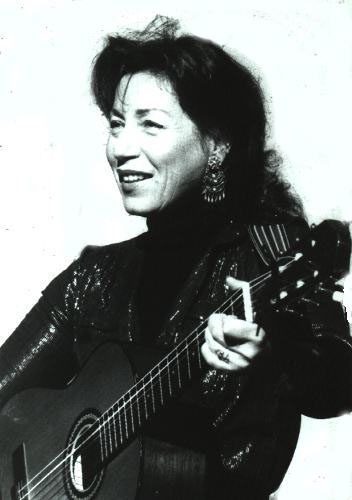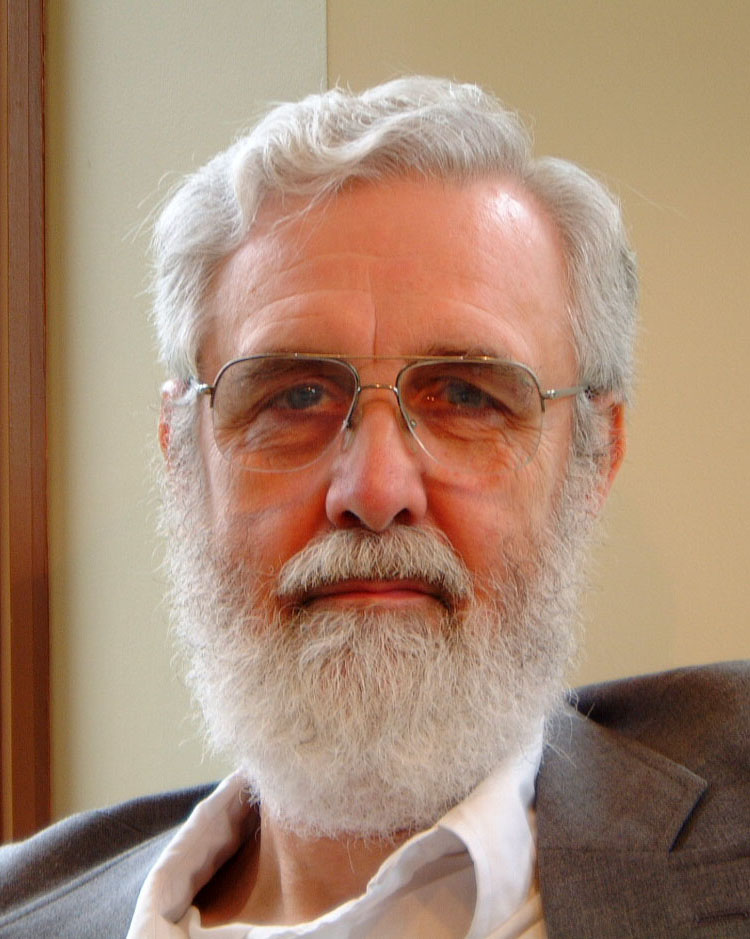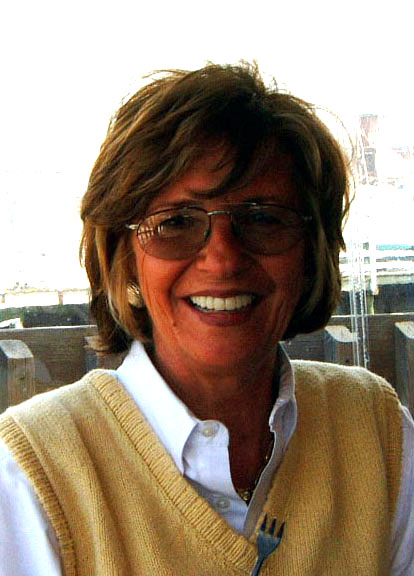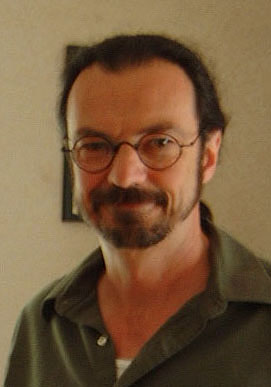Summer 1966 |
||
|
Prior to Ill Wind's formation as a folk rock band, several members performed together during 1964-65 on the folk music circuit in Boston/Cambridge.The duo of "Norm and Judy" consisted of Norm Gann and Judy Bradbury, with Ken Frankel on various stringed instruments and Carey Man on standup bass. In early 1966 Ken, Carey, and Judy began rehearsing as an electric band, first as the Blues Crew and then briefly as the Prophets. They played just one gig before being joined by Richard Griggs in June and Dave Kinsman in July of 1966. Ill Wind was officially launched that summer, with a lineup of Judy Bradbury (vocal), Ken Frankel (guitar, banjo, vocal), Richard Griggs (guitar, vocal), Carey Mann (bass, vocal), and Dave Kinsman (drums, vocal). This configuration began working regularly in September and lasted until the end of the year, when Judy left for a teaching job in Hawaii and was replaced by Conny Devanney. The new lineup performed througout New England and in New York, recorded several demos during 1967, toured California in the summer of 1967, and recorded the album "Flashes" in winter of 1968. Ill Wind was probably the second psychedelic band in New England (after the Lost) and was certainly one of the first to perform a large proportion of their own original material. The band was popular on the college and resort circuits and were regulars at the Boston Tea Party and at the outdoor concerts at the Cambridge Common. Although the band had been recording since late 1966 and had cut several release-quality songs in '67, a drug bust in that summer cost them some time when their contract negotions with Capitol Records stalled. A new deal with independent producer Tom Wilson resulted in the album Flashes, which arrived in the record stores in June of 1968, but by this time a critical window had closed. During the fall and winter the ill-conceived "Bosstown Sound" promotional scheme cooked up by Alan Lorber and MGM Records had created a critical backlash against New England rock and national interest had cooled. This was compounded by a lack of distribution support by ABC Records. Despite strong airplay and a solid local following the album was difficult to find. Even the Harvard Coop found it impossible to restock after the initial batch quickly sold out. Disappointing sales let to cancellation of the intended promotional tour, and the band was left without work in the early summer. Carey Mann left the group in July of 1968 and was replaced on bass and vocal by Michael Walsh. But no sooner had the group started working again when manager Tom Frankel was in a serious car wreck and spent some weeks in traction. Then Tom Wilson picked up their recording contract for another year, leaving them the choice of whether to continue working with him or to pull the plug. The band kept performing until December of 1968, at which point they disbanded with no expectation of a return. Several of the band members and their extended family moved to the San Francisco Bay Area in the spring of 1969, but the following year Michael and Dave returned to Boston. The band reformed in April of 1970, with a lineup consisting of Conny, Carey (now on lead guitar and organ), Richard, Michael, and Dave. Despite a regular gig schedule and much musical promise, things were not quite ready to gel. Carey departed the band (for the second time) in August of 1970 and was replaced by guitarist Larry Carsman (formerly of the Detroit band the Gold Brothers). Larry also left in December of that year to join the James Montgormery Blues Band; he was replaced by Walter Bjorkman (formerly of Cloud and Swallow). Richard left in the spring of 1971 and was replaced by pianist Bryant Thayer, who stayed for less than a year. Ill Wind finally settled into a grove with a strong performance presence but without its previous focus on orginal material. The band continued to perform as a quartet until 1973 but despite solid local popularity they were never to release any new commercial recordings or to achieve national prominence. Their repuation lives on, though. Flashes has been reissued at lest four times (never legitimately) and cuts from it have appeared on at least four compilations. Original copies of the LP sell at eBay auction for as much as $175.00 and the record was listed as one of the "greatest albums of all time" in 2003 edition of the Mojo Collection. |
and now...
| Judy
(Bradbury) Frankel Collector, composer, and performer of Sephardic songs. |
Ken
Frankel Lives in Ross, California with his wife Susan. Real estate developer. leader of the Electric Guitar Quartet. Former owner of the Phoenix Theater in Petaluma and the Cotati Cabaret. |
||
| Richard
(Griggs) Zvonar Artist and technologist specializing in electroacoustic music and intermedia performance. |
Carey
A. Mann, Jr. Lives in Sherborn, Massachusetts with his wife Terry. Co-founder of Leaf Systems, developer of high-end digital imaging systems, and Sound Vision, developer of consumer imaging products (recently retired). |
||
| Dave
Kinsman Lives in Fryeburg, Maine with his wife Connie and their two children. Founder of Downeast Bicycle Specialists, importers of bicycle parts (recently retired) |
Tom
Frankel Lives in Las Vegas with his wife. Practices oriental therapies and runs several businesses including an art gallery. |
||
| Conny
Devanney Lives in Swamscott, Massachusetts with her two dogs. Ran a successful booking agency during the 1970s. Now manages estate sales , sings regularly with both 8-piece and 20-piece bands, and is a professional watercolorist. |
Michael
Walsh Lives in Vermont with his wife Belinda.
|
||
| Dick
"Berred" Ouellette Lives in Brookline, Massachusetts with two of his four daughters. Recording engineer and sound designer. |
Larry
Carsman Lives in Wellesley, Massachusetts with his wife Chris. Their daughter Sarah is a violist. Guitarist, tax consultant, and self-proclaimed "housewife." Frequent vistor and enthusiastic collaborator on the Cuban music scene. |
||
| Walter
Bjorkman Chef and cellist. |
Bryant
Thayer Lives in Boston. Manager of Lincoln Wharf apartment complex. |
